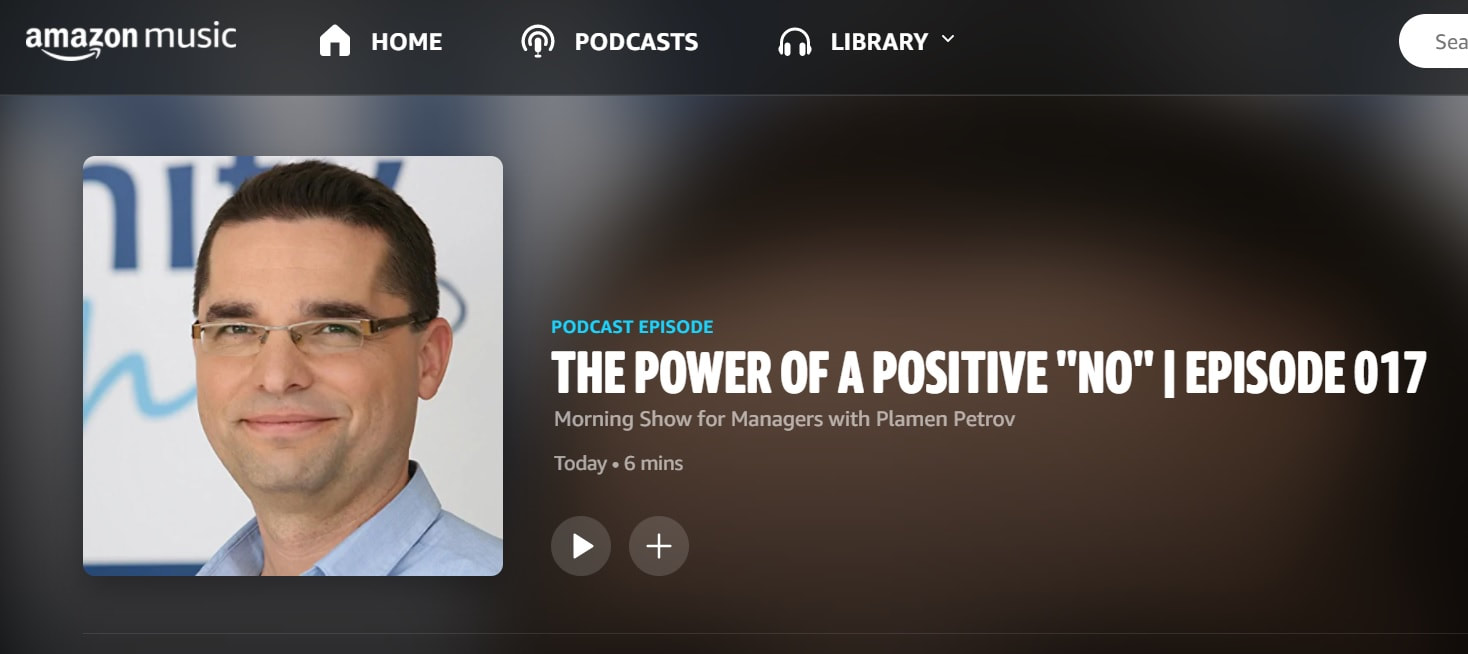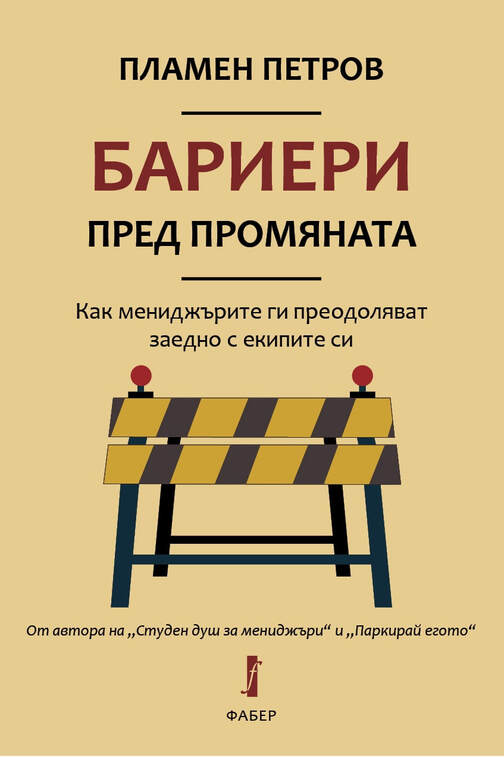|
"What can a poet achieve if he is not in pain?" Pain is just as important as the typewriter."
Charles Bukowski The purpose of the following lines is to provoke you to say "NO" to those things or people for whom you have long been postponing saying this "NO" to. So far, you may have been stopped by your good manners and unwillingness to offend or hurt someone else. But in saying "NO" to something, there is a very deep positive force when you know why you say it. This is good not only for you but also for the person on the other side. It is probably good for some third parties as well. Here is a specific example. Let us say your office is an open space with many people working on the same floor. Your desk is near a central corridor or a door, which is passed by dozens or hundreds of people a day. From time-to-time people stop by you, strike up a brief conversation about yesterday's football match, or about Kubrat Pulev's kiss. For them, this is just part of their planned coffee break with a walk and taking coffee from the kitchen area. For you - this is another useless distraction. If you say a positive "NO" to the dozens of unwanted daily distractions, what will be the biggest benefit for you? First, your working hours will be enough. Late nights or early mornings will be the exception rather than the current practice to get the job done. Now, managing the current workload is only possible if you stay up late or come early. The second benefit will be that mistakes in your work will be reduced. You will not have to write and read the same sentence five times because of a lack of good concentration. The third benefit will be that you will probably have some free time left, which you will decide how to use. You, not the surrounding people. You will decide how to use the free minutes instead of the casual office pedestrians. Apart from these undeniable benefits, there are some disadvantages to saying "NO". Some colleagues may be offended that you do not have a normal human attitude to exchange a couple of words with them. Some will think your ego is too big. Others will say you are pretending to be busy. Others will say that you have no friends in the office because you do not talk to anyone outside of meetings. If you put the opinion and approval of others before your desire to do your job without distractions, you will never have enough time. This is not because there are so many tasks. It is simply because you cannot organize yourself well and you cannot concentrate on your current tasks. You cannot say a positive "NO". A positive "NO" is not an oxymoron. It simply suggests that saying "NO" also has many positive effects. Especially if you get the right dose at the right place and with the right people. Now, you may think that you are not using the positive "NO" because of others. So as not to hurt them, so as not to draw wrong conclusions, etc. But in fact, you are not saying a positive "NO" just because of you. Think about it. What if someone gets hurt because you do not have a small talk? If your colleagues are offended because you do not engage in chit chats, what will happen to them when they have a good reason to be offended? Managers are more likely to avoid negative experiences than to pursue positive ones. That is why so many team leaders prefer to avoid social rejection and negative perceptions than to focus on the positive experience of doing their work during working hours. Failure to use the positive "NO" is also the fast track to professional burnout. *** The book "Cold Shower for Managers: Empower and Inspire Your Team with Your Humility and Accountability" by Plamen Petrov on Amazon - https://amzn.to/2Ka23CU The book "Park Your Ego: Face Your Bullsh*t and Own It" by Plamen Petrov on Amazon -https://amzn.to/3r5cves
0 Comments
Leave a Reply. |
Архиви
July 2024
|
__________________________________________
Copyright © 2011-2024, Equinox Partners Ltd. All rights reserved.
Copyright © 2011-2024, Equinox Partners Ltd. All rights reserved.


 RSS Feed
RSS Feed


